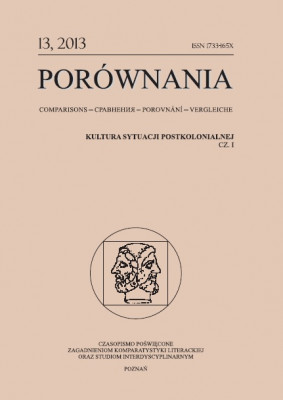Necessary Fictions in Polish Prose after 1989
The term „necessary fiction” was presented to the Polish postcolonial theory followers by Dariusz Skórczewski in his polemic with Niesamowita Słowiańszczyzna by Maria Janion. He disagreed with Janion's vision of the role of Christianity in forming the Polish national identity. Bhabha argues that there is another way of presenting the postcolonial subject than the one founded on the combination of realism and historicism – the one, that assumes reality as given, but created on the basis of the criticism of representation. Necessary fiction is a way of „creating the tradition” based on historical, literary historical and cultural continuity. It shows the objective order of things – historically and culturally – and in this way it describes the reality and even designs it. The author observes three way of constructing such a fiction of continuity in the Polish prose and literary criticism after 1989: the Slavonic trail, the Sarmatian trail and the discussion about the similarities between political breakthroughs of 1918 and 1989. Bhabha warns that the component of „necessary fictions” – the imperative to pass down the values – may result not only with limiting literary criticism to nonaesthetic questions, but also with preserving the resentimental, Western complex.
| Article Title | Type | Size |
|---|---|---|
| EMILIA KLEDZIK | [pdf] | [272 KB] |
